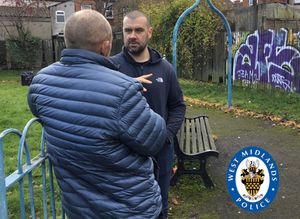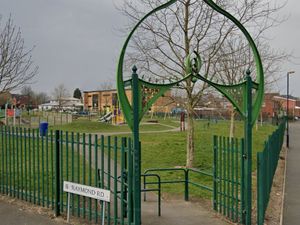Group of offenders who committed 300 burglaries now crime free after pilot project
Prolific burglars have signed up to a new pilot scheme which sees them either stick to rehabilitation 'contracts' or face more time in jail.

Detectives in Birmingham launched the scheme in August 2017 that saw a small group of repeat offenders − most with dozens of crimes to their name − given a chance to break the cycle of offending, substance abuse and jail time.
The deal involves suspending prison terms for four months − during which time they are electronically tagged − in exchange for entering into a contract outlining targets that participants must hit.
Contract conditions are unique to the individual but can include meeting crime victims in Restorative Justice sessions, committing to education, training or employment opportunities, and getting support for drug and alcohol addiction.
Those who stick to the deal are put on community orders and given ongoing help to address issues that trigger their offending − but anyone failing to adhere to the deal is taken back before the courts and their prison sentence reinstated.
A total of nine convicted burglars have taken part in the project to date − all with the blessing of their crime victims − with seven successfully steering clear of crime.
They include a 47-year-old Birmingham man who started out on a life of crime having experienced a traumatic childhood in the 1970s care system. He has now secured work with a public sector contractor, been drug-free for two years and is now a mentor helping divert others from crime.
It also includes a 21-year-old man who fell into crime when struggling to come to terms with a family bereavement. Police has helped him get back into full-time education and he has recently secured a university place.
And an addiction-driven offender who had committed 20-plus burglaries in his community. He got onto a construction training program, is now in full-time employment, drug-free and has rekindled relationships with his family.
And the project has helped West Midlands Police achieve a reduction in burglary rates of more than 16 per cent so far this year compared to the same period in 2018.
West Midlands Police Sergeant Sandy Thompson runs the project. He said: “As a detective I’ve worked in a catch and convict environment for many years. Success has always been viewed as getting crooks into prison – but that doesn’t address their behaviour and when they get out they are likely to reoffend and cause more hurt in our communities.
“This project puts the onus on the offender to change their ways. They’ll tell us ‘I really want to work’ or ‘I want to get off drugs’ so we say to them − prove it. The contracts set goals which can help them turn their lives around and help us protect the public.
“We put forward candidates to the courts − offenders who say they’re willing to take part, who we believe can change, and whose victims are supportive − but the judge has the final say and can choose to send them to prison.
“But if they fail to cooperate then they’ll find themselves back in a prison cell. This certainly isn’t a Get Out of Jail Free card. It’s about addressing the root cause of a criminal’s offending to reduce burglaries, whilst ensuring we fully utilise the current sentencing options available so we’re best equipped to break their cycles of offending.
“These nine men have committed around 300 burglaries between them. Most have now not committed any offences for two years; that’s saved a lot of residents the heartache of suffering a break-in and saved a lot of money for the police, courts and prison service."
The offenders taking part in the scheme − none of whom have committed robberies where violence has been used against residents − range in age from 18 to 47-years-old.
Only two have fallen off the wagon and committed further offences. Both are now back in jail with one being handed a seven-year prison term on August 1.
The West Midlands Police and Crime Commissioner David Jamieson, said: “Schemes like this work because they help to change behaviour of those who have offended.
“Locking up offenders for a number of years may stop them committing crime whilst in prison, but often they simply pick up where they left off once they’ve been released.
“Rolling out more schemes such as this was key to my drugs policy recommendations announced in 2018 and are vital to breaking the cycle of crime and helping those who have made poor decisions in the past get their lives back on track.
“However, this project breaks that cycle of crime, protects the hard working people of the West Midlands and rehabilitates offenders back into society."





